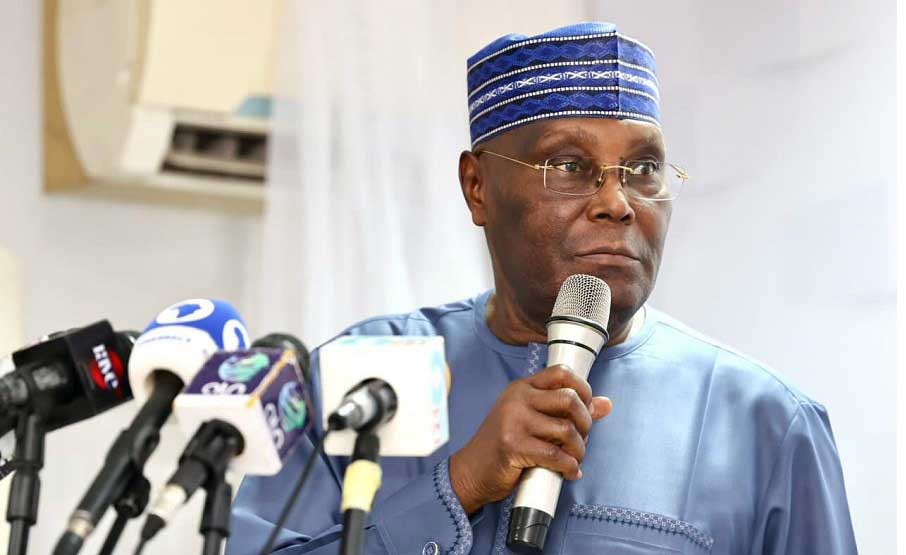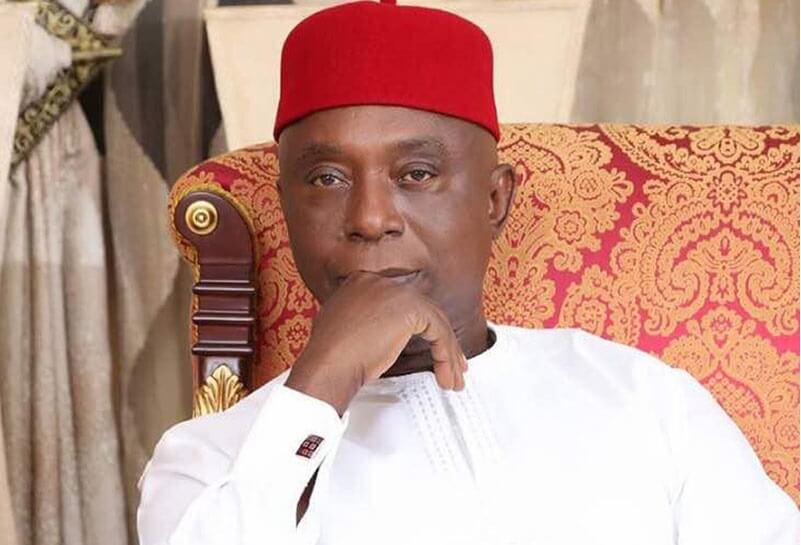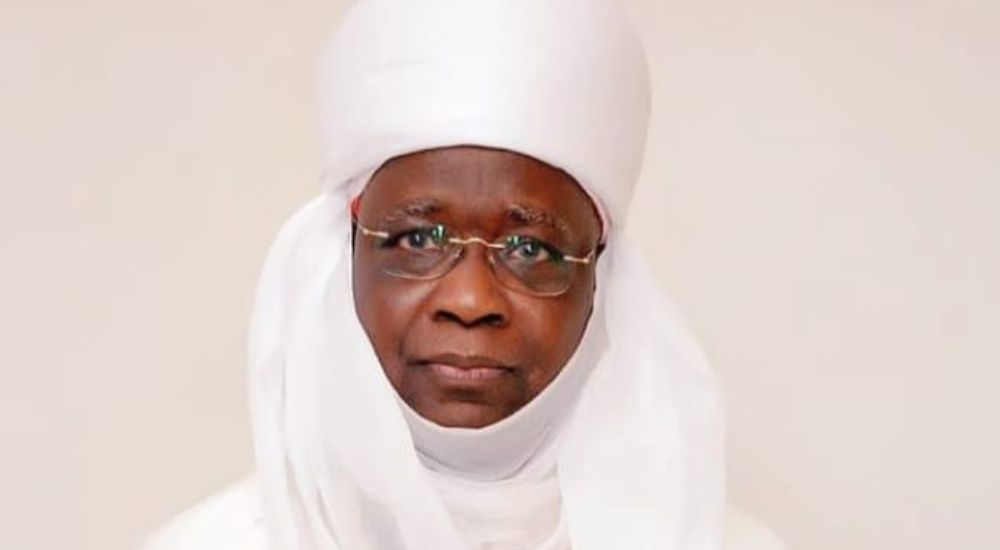Northern Elders Split, Warn Atiku Against Running For Presidency In 2027

Again, ambition by former vice president, Atiku Abubakar, to become president has suffered an early defeat as a major bloc in the Northern Elders Forum (NEF) has warned him to kill the ambition and rather pass the torch to a younger generation.
The NEF bloc led by its former spokesperson and until recently the Special Adviser on Political Matters in the Office of the Vice President, Dr Hakeem Baba-Ahmed Atiku has pulled out in their support for the top man of the Peoples Democratic Party (PD) often mocked as a serial contestant.
Since 1993, Atiku has always contested for the top post in the country. Although he’s yet to announce he will contest and has also not renounced it, his increasing political meetings and visits to statesmen in the country point to another bid to contest in 2027.
His men have continued to float him as the most formidable opponent that can unseat President Bola Tinubu and have begun to move to a new political party, the Social Democratic Party (SDP) following troubles in the PDP.
He has continued his vitriolic attacks on President Bola, espousing policies he feels he could implement if he becomes president.
But the ambition has now suffered early damage following Baba-Ahmed’s warning: don’t contest, allow a younger generation to take on President Tinubu, whom he had earlier accused of providing the worst leadership in the country as soon as he resigned his position a few weeks ago.
In a wide-ranging interview aired on Channels Television, Baba-Ahmed stated that Atiku, who has contested the presidency six times, should now assume the role of an elder statesman and help nurture visionary leaders with integrity, empathy, and new ideas.
Although, he had issued a similar appeal to President Tinubu in an open letter dated April 23, warning that a re-election bid would be a “grave mistake” given the current state of the nation, the appeal was dismissed and would not have a fa reaching consequences as Tinubu is already a president unlike Atiku.
“If I had the chance, I’d tell Atiku the same thing,” he said during the interview. “He’s done his bit. He’s been persistent. But now, he should play a fatherly role—help identify and support younger leaders.”
Baba-Ahmed argued that the PDP could remain a formidable force in the 2027 elections, but only if it fields a youthful candidate with fewer controversies, better health, and a reformist mindset.
He emphasized that the era of regional politics must give way to competence and national vision.
“It doesn’t matter where the person comes from. At this point, anyone still talking about North or South is missing the point. We need competence and vision,” he stressed.
Obi and Atiku: Time to Retire
Baba-Ahmed did not spare Labour Party’s Peter Obi, who placed third in the 2023 presidential election. While he acknowledged Obi’s ideas, he questioned whether he or Atiku would have performed better than Tinubu.
“All these people—the best service they can render to this country is to retire themselves,” he said. “If they don’t, then Nigerians should retire them.”
According to him, persistent ambitions from political veterans are a distraction from the urgent need for governance and reform.
“You’re letting the PDP fool you into thinking there’ll be an election next year. You’re falling into a trap. Focus on governance. You’ve got an uncompleted job to do.”
Why He Left the Tinubu Administration
Baba-Ahmed’s remarks also shed light on his unexpected resignation earlier this year. He had joined the Tinubu administration in June 2023, despite past criticisms of the All Progressives Congress (APC) and former President Muhammadu Buhari.
He explained that he took the job out of patriotic duty to help repair what he called a “broken country” inherited from Buhari.
However, he soon grew disillusioned by the lack of political will and seriousness.
“I left because I didn’t see the fire, the commitment, the zeal to fix the country. Instead, things got worse,” he said.
Despite his role, Baba-Ahmed claims he had minimal involvement in decision-making and never even met President Tinubu during his tenure.
“I was supposed to advise the president, working from the VP’s office. But I never got the opportunity. I didn’t even meet the president throughout my tenure,” he revealed.
He said he declined a later opportunity to meet the president because he feared he would have told him what he wrote in his open letter: “Mr President, please don’t run again in 2027.”
Criticism of the APC and EFCC
Baba-Ahmed also criticized the current political landscape, describing the ruling APC as a “political refugee camp” for politicians defecting to avoid prosecution rather than out of ideological conviction.
“People are defecting not because of ideology or policy, but to escape prosecution or secure power. They won’t write to the EFCC saying, ‘I’m joining APC to avoid prosecution,’ but that’s exactly what’s happening,” he said.
He accused the Economic and Financial Crimes Commission (EFCC) of lacking independence and effectiveness, further undermining the integrity of Nigeria’s anti-corruption efforts.
Buhari’s Legacy: “The Worst President”
In a striking rebuke, Baba-Ahmed also condemned former President Muhammadu Buhari’s leadership, asserting that his administration was the worst in Nigeria’s history.
“He didn’t represent the North—he represented himself. We backed him in 2015 because he was the better option than Jonathan. We thought he’d be tough on corruption and could unify the country. But he turned out to be the opposite.”
Baba-Ahmed, who was active in Buhari’s campaign and led the APC in his home state for four years, said he and others had tried to privately advise Buhari during his presidency but were eventually forced into public criticism due to inaction.
“From my experience—I’m 70 years old—yes. I haven’t seen a government that governed less, cared less for the poor, or failed more at setting priorities,” he said.
Worsening Conditions Under Tinubu
He concluded that conditions have worsened under Tinubu’s administration, particularly in northern states such as Niger, Plateau, and Benue, where violence continues to escalate.
“Go to Niger, Plateau, Benue—more blood is being shed now than two years ago. Yet, they release statistics claiming there’s less violence. Who gives them these numbers? Do they even know how Nigerians are living?” he asked.
Baba-Ahmed said the disconnect between government rhetoric and the lived realities of ordinary Nigerians is stark, and unless addressed urgently, Nigeria risks deeper social and political fragmentation.
Northern Elders Split, Warn Atiku Against Running For Presidency In 2027 is first published on The Whistler Newspaper





